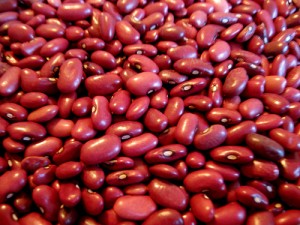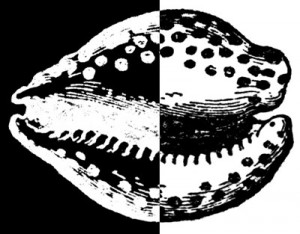
Dietary taboos keep those foods sacred so that one day they may be used in ebó to save you.
Within the religion of Santería Lucumi/Lukumí, there is a ritualized practice of taboo. Taboos, called ewo in Lucumi, are restrictions placed upon a person’s behavior, diet or lifestyle according to religious doctrines. Taboos play a critical role in the practice of Santería but the reasons for them are often misunderstood. Some mistakenly think of taboos as a difficult penance or sacrifice a person makes in their life because they are afraid of divine punishment from the orishas. This is very far from the truth. Ewo is something dictated through divination for the benefit of the practitioner himself.
Taboos are typically indicated through diloggun divination. They can be temporary taboos prescribed to a client for a restricted time – like a month – while that person is under the influence of the odu (divine sign) that came out in their reading. They can also be permanent taboos that apply for a person’s entire life. These are usually prescribed for an individual when they receive a life reading (itá) after initiation. (Life readings are only received when a person is initiated in Kariocha as a priest, or when they receive their Awofakán/Ikofá of Orunmila, or if they feed an orisha a four-legged sacrifice and receive itá afterward – including with the reception of a new orisha’s mysteries.)
In Santeria the most common form of taboo is a dietary ewo. These indicate that certain kinds of foods are off-limits. Typical examples include taboos against eating eggs, ram meat, red beans, reheated foods or pumpkin. There are countless other examples. Some of these are done for hygienic reasons like the reheating of foods. Other taboos are prescribed to prevent problems with food being laced with items, like a taboo against drinking dark drinks (in which powders or poisons can be hidden). But the most common reason for prescribing a food taboo is for that person’s spiritual salvation through ebó (ritual or sacrifice).

Red beans are an example of a dietary taboo (ewo). They are commonly used in spiritual cleansing to keep off disease.
The practice of ewo (taboo) is born in the odu Ejioko (2) from our divination systems. Ejioko taught humanity how to avoid premature and untimely death. He showed us how to use ewo (taboos) as a way of making something sacred. By abstaining from certain foods or items, we give them ritual importance and power. One day, the power we’ve given those very items will come to our aid and save us through the power of ebó (sacrifice and ritual). For example, by giving up the consumption of ram meat, one day when you need it most, the sacrifice of a ram to a particular orisha will be the very ebó (ritual) that saves you from ikú (death). The same goes for the other foods you have taboos against. This is the true spiritual significance of ewo and why it is so powerful.
There are also behavior taboos. These are usually assigned to keep a person in a state of iré (blessings) and prevent them from falling into osogbo (misfortunes). Each odu in the diloggún indicates a person’s strengths and weaknesses. For example, the odu Ogundá (3) warns about propensity for violence, therefore that person is given a behavioral ewo against keeping weapons in the house, and to avoid being out on the street at night where there can be violence. These ewo exist to keep a person save from harm. Common behavioral taboos include: no alcohol, never raising a hand against someone, no love triangles, never hitting children, never disrespecting elders, and not loitering in groups of three.
A taboo is only powerful because that person adheres to it. In the case of food taboos, if a person refuses to follow taboo, that substance can no longer save them when they need to do ebó. Breaking a taboo only hurts the person who is refusing to follow them. They are rendering one of the most powerful tools they have powerless. In the case of behavioral taboos, not following them only draws osogbo (misfortunes) to a person and invites problems in a person’s life. The orishas aren’t going to get angry at you for breaking your taboos, but you are inviting problems into your life by not adhering to them.
If you receive ewo (taboos) in a diloggún reading the best thing you can do is stick to them and do your best to follow the behavioral advice that your diviner recommends. This is how we can change a person’s destiny, remove osogbo from their life and restore that person’s balanced state of iré (blessings). If you break a taboo, return to proper behavior and continue to respect it going forward but know that continued breaking of ewo (taboo) will only hurt yourself.


 Pagan Blog Project
Pagan Blog Project
Follow Us!